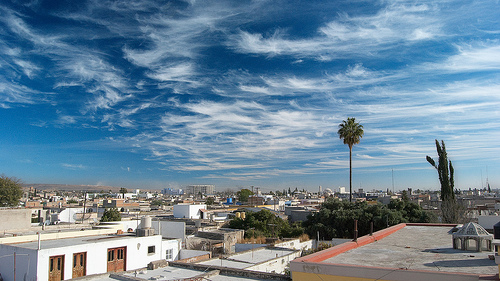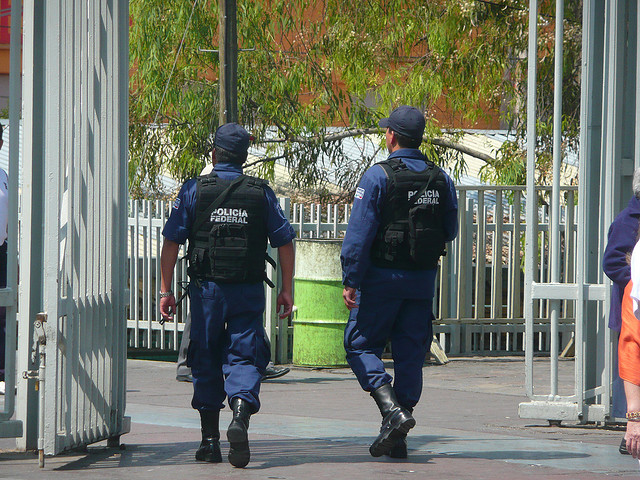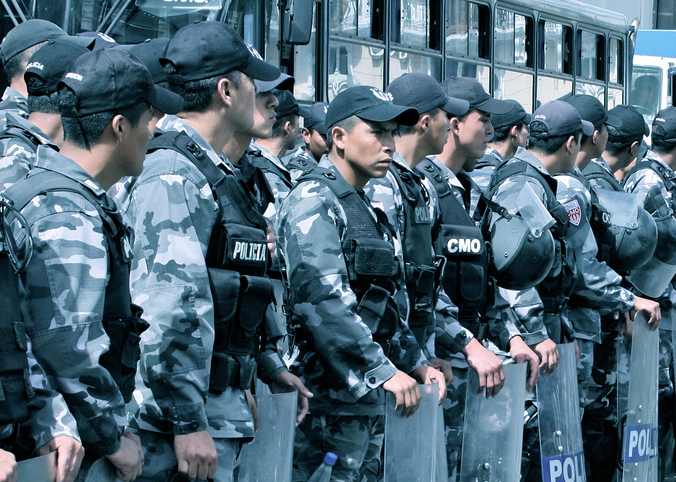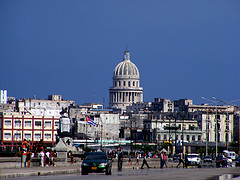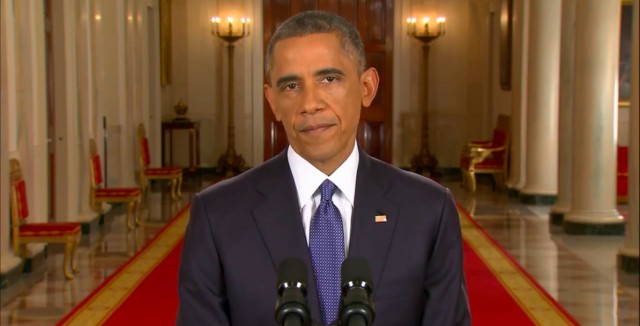
Argentina, Latin America: Week in Review, Southern Cone
Thousands March in Argentina One Month After Prosecutor’s Death
February 19, 2015 By Staff
Buenos Aires was the scene of a major protest on Wednesday as thousands held a rally to express their dissatisfaction with President Cristina Fernández’s handling of the investigation into the mysterious death of prosecutor Alberto Nisman, The Associated Press reported.
While estimates on attendance were not immediately available, the march was one of the largest since Nisman was found dead one month ago in his apartment of a single gunshot wound to the head.
Fernández made veiled references to the fallout from the prosecutor’s death during the inauguration of a power plant named for her late husband, former President Néstor Kirchner, early on Wednesday.
“I can go to any country in the world,” Fernández said, “and say that in Argentina the law rules.”
The protest against Fernández is the latest sign of discontent over her handling of Nisman’s death, as well as the criminal complaint he was preparing against her, which alleges she covered up Iran’s involvement in a 1994 terror bombing in Buenos Aires in exchange for access to oil. Nisman’s investigation into the charges, which both Fernández and Iran’s government deny, will be picked up by another federal prosecutor.
North America
- The head of Mexico’s state-run oil company Pemex announced the postponement of several deep-water exploration projects as well as the firing of personnel due to the plunge in international oil prices.
- Demonstrators held a vigil on Wednesday in downtown Seattle over the fatal shooting of Antonio Zambrano-Montes, an unarmed Mexican immigrant, by police on Feb. 10 — an incident that has drawn comparisons to police shootings of unarmed African-American citizens in Ferguson, Missouri and New York City.
- Mass confusion and concern spread across migrant communities in Texas following a federal judge’s decision to block President Barack Obama’s executive action on immigration reform late Tuesday night, a move that many believe will generate greater distrust between locals and the government.
- The number of munitions seized at Mexico City International Airport has skyrocketed in the past two years, though whether this rise is due to changes in the international arms trafficking trade or improved airport security is difficult to determine.
Caribbean
- The rate for online access in Cuba’s state-run Internet cafes has temporarily dropped by 50 percent, a move that marks limited progress following Obama’s announcement last year that Cuba has promised to increase Internet access.
- The lead singer of Haitian hip-hop group Barikad Crew, known by the stage name Fantom, survived getting electrocuted atop a float during a Carnival parade on Tuesday, and recounted the events that led to a deadly stampede to The Associated Press from his hospital bed.
- The Haitian government announced Wednesday that it was investigating preventative measures to avoid future accidents with overhead power lines, following Tuesday’s deadly incident during Carnival celebrations.
Central America
- An El Salvador court has approved a request to seize the assets of a couple convicted of money laundering, a landmark ruling that marks the first time in which members of the Perrones drug trafficking group will have their assets seized.
Andes
- Ecuador has successfully lowered its murder rate since 2011 — working towards a homicide rate goal of only 5 per 100,000 by 2017 — largely by improving police-citizen relations, according to Ecuador’s interior minister.
- Tens of thousands of Colombian miners demonstrated in favor of mining code reform and the formalization of informal mining practices, marking the third time miners have staged a strike since President Juan Manuel Santos took office in 2010.
Southern Cone
- A Chilean judge ruled Tuesday that the statute of limitations had expired for bringing charges against Gerardo Joannon, a Catholic priest who allegedly played a prominent role in kidnapping babies and giving them up for adoption during the 1970s and 1980s.
- Rain has finally fallen in Brazil’s drought-plagued industrial capital of São Paulo, which experienced heavy rains during Carnival celebrations.
- Uruguayan President José Mujica criticized the six Guantanamo detainees who resettled in the country in December, saying that they have refused to work since entering the country — a claim that some lawmakers have criticized as insensitive.
Image: YouTube
